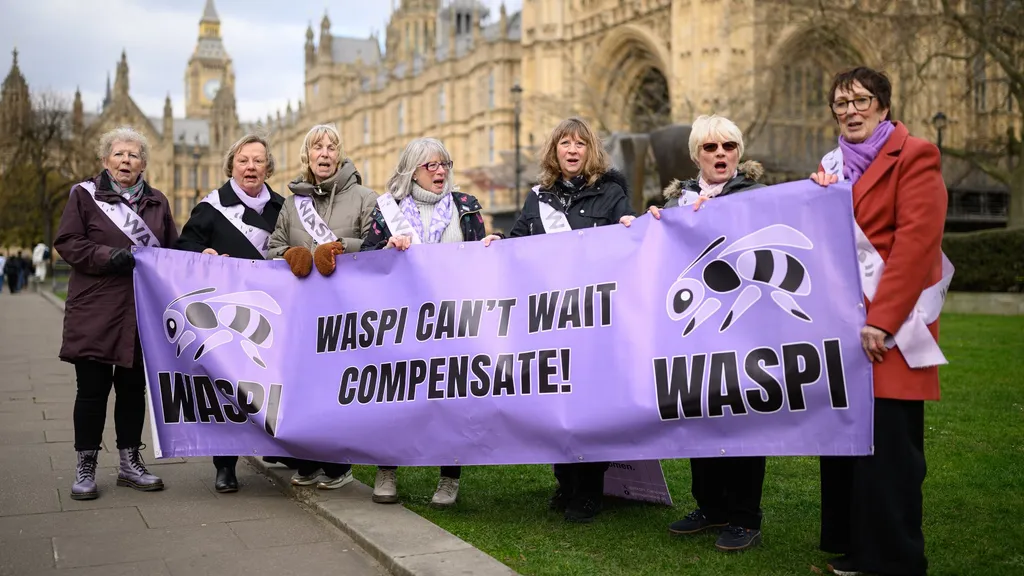Women born in the 1950s who missed out on state pension payments have “cleared a major hurdle” in their fight against the government after being told they will not receive compensation, said GB News.
The Women Against State Pension Inequality (Waspi) group claimed 3.6 million women now in their late 60s and early 70s were given “inadequate or no notice” concerning a rise to the state pension age that brought them into line with men.
The group plans to fight the denial of compensation and has “received confirmation” it can now move “toward a court hearing”. It is seeking a judicial review to “force the government to rethink its decision to rule out financial redress”.
While the Labour government initially accepted historic miscommunication about state pension changes while in opposition, it has since concluded that “taxpayer-funded compensation could not be justified”.
Who are the Waspi women?
The Waspi campaign is “fighting for justice for all women born in the 1950s” who were affected by changes to the women’s state pension age, which increased from 60 to 68 between 2010 and 2018 to align with men’s state pension age.
The group insists the age alteration was implemented with “too little notice”, said MoneyWeek, consequently leaving many “unable to plan adequately for retirement”.
Women affected by the state pension decision took their complaint to the Parliamentary and Health Service Ombudsman and were told the Department for Work and Pensions (DWP) did not adequately inform thousands of women that their state pension age had changed.
The result was that women “lost opportunities” to make informed decisions about their retirement, impacting their “personal autonomy and financial control”, the report stated.
Ultimately, the review by the ombudsman, published in March 2024, ruled in favour of the Waspi women, deeming that the DWP was guilty of “maladministration”. It recommended payments of between £1,000 and £2,950 to the affected women, which would “put the total bill at up to £10.5 billion”, said The i Paper.
However, in December, the Labour government, while accepting the verdict, “dismissed the recommendation of compensation”, with Work and Pensions Secretary Liz Kendall suggesting such payouts would not be “fair or proportionate”.
Waspi estimates that almost four million women were affected by the changes. Many of them claim they “had no idea” they would need to wait longer to receive their state pension, and “suffered financial and emotional distress as a result”, said the BBC. Some women claimed they received no notice at all.
What was the reaction to the Waspi decision?
The decision marked a “day of shame for the government” said the Liberal Democrats, who accused the government of having “turned its back on millions of pension-age women”.
Angela Madden, chair of Waspi, told The Independent the decision was a “bizarre and totally unjustified move” given the ombudsman’s findings, and that the conclusion “would make the likes of Boris Johnson and Donald Trump blush”.
But while Labour shamelessly betrayed” Waspi women, ultimately, it was the “right thing to do”, said The Telegraph’s Ben Wilkinson, as the “vast majority” knew about the scheduled changes. While assurances of compensation for these women may have been easy to make in opposition, “in power, our leaders have been forced to admit their promises were all a fantasy”.
What next for Waspi women?
Kendall “abruptly silenced nearly a decade of campaigning”, said The Wilkinson, “extinguishing any hope” that 1950s-born women may have had for future compensation.
However, the decision to launch legal action against the government proves the fight is, regardless, likely to continue.
Waspi has recently raised £180,000 to fund its legal action, and has “submitted its written legal arguments” to the court in hope of securing a full hearing, said Saga. The group has also applied for a “cost capping order” to ensure it is not responsible
for “unlimited legal costs” should it not be successful with their claim.
“In the coming weeks” a decision on the cost capping order is likely to be made in a “short hearing”, said the Daily Express. Madden said the government “is being Goliath to our David” and that the order is “vital” for their case to progress.
However, “numerous lawyers” have suggested 1950s-born women are “unlikely to win” their case, said The i Paper. The government is “not legally obliged to implement” recommendations by the ombudsman, a difficult point to argue against.
As the fight continues, 1950s-born women have been urged to “be on high alert”, as there has been a “steep rise” in scams targeting this group, said MoneySavingExpert.
One website is “falsely claiming” the government is currently providing compensation, while there have also been reports of emails “asking for sensitive information, such as birth certificates and bank details”.
